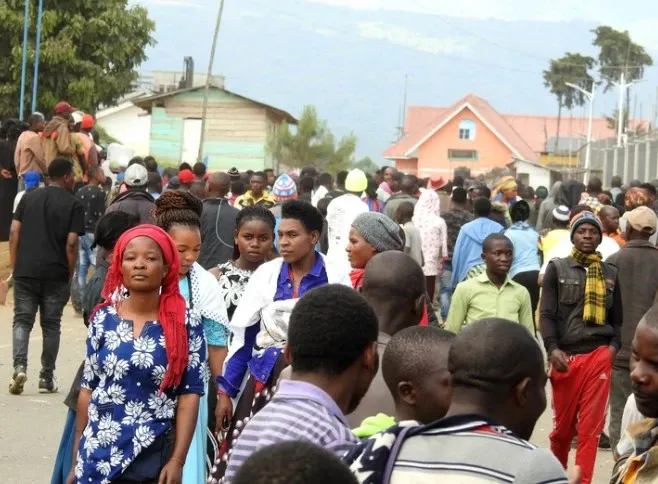Will Uganda Welcome Nearly 2 Million Refugees by 2025 Amid Rising Crises?

Synopsis
Key Takeaways
- Uganda is projected to host 2 million refugees by 2025.
- The country has a progressive refugee policy allowing refugees to live and work.
- Funding for refugee support is currently at only 25%.
- International support is crucial for Uganda’s refugee response.
- Severe food aid cuts are impacting over 1 million refugees.
United Nations, Aug 5 (NationPress) Uganda, which currently hosts 1.93 million refugees, is projected to accommodate 2 million refugees by the end of 2025 due to the worsening situations in Sudan, South Sudan, and the Democratic Republic of the Congo, as reported by a UN representative.
The turmoil in these regions has led to an average of 600 individuals crossing borders daily in search of safety and essential aid, highlighted Farhan Haq, the deputy spokesperson for the UN secretary-general, during a recent daily briefing, referencing data from the UN Refugee Agency (UNHCR).
According to Haq, Uganda stands as the largest refugee-hosting nation in Africa and the third largest worldwide, according to reports from Xinhua news agency.
While Uganda's progressive refugee policies permit refugees to live, work, and access public services, significant funding shortages are severely jeopardizing aid delivery and risking the progress achieved over the years, he pointed out.
Currently, Uganda's refugee response is only 25 percent funded, prompting UNHCR to urge for increased international support and solidarity to ensure that both refugees and their host communities can lead safer and more dignified lives.
On the recent World Refugee Day, Uganda, recognized as Africa's leading refugee-hosting nation, reiterated its appeal for global assistance in light of the escalating influx of refugees.
Hilary Onek, Uganda's minister for relief, disaster preparedness, and refugees, stated that diminishing international support has left the country grappling with over 1.9 million refugees, primarily from South Sudan, eastern Democratic Republic of the Congo, and Sudan.
"Uganda is renowned for its progressive refugee policies," Onek remarked. "However, the rising numbers have placed immense pressure on healthcare, education, and the environment in host districts. We can now only address the most basic needs."
He voiced concerns that without further funding, many humanitarian workers may face layoffs.
The World Food Program (WFP) announced in May a reduction of food aid to 1 million refugees due to critical funding shortages. Before this, the WFP had already scaled back rations, providing new arrivals with only 60 percent of the standard food basket, while the most vulnerable received 40 percent, and moderately vulnerable households just 22 percent.
Leonard Zulu, the United Nations (UN) resident coordinator in Uganda, indicated that a recent allocation of 2.5 million US dollars from the UN Central Emergency Response Fund has assisted 42,000 refugees at key reception centers but stressed the necessity for additional support.
"While Uganda remains committed to welcoming displaced individuals, it cannot do this alone," stated Matthew Crentsil, UN High Commissioner for Refugees representative in Uganda.










